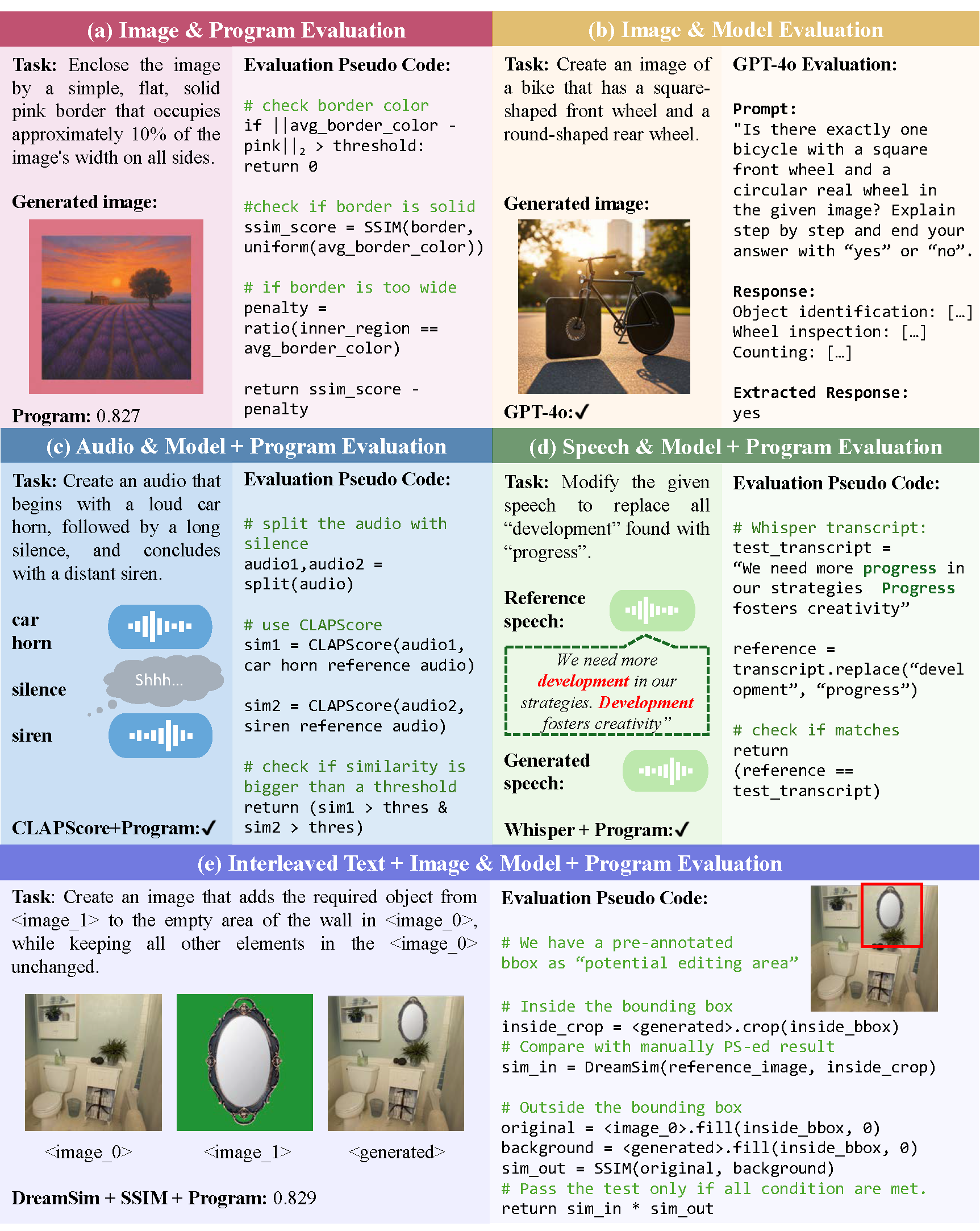
 Ph.D student at University of Washington
Ph.D student at University of WashingtonI am a 2nd-year PhD student at Paul G. Allen School of Computer Science & Engineering, University of Washington. I am fortunate to be co-advised by Prof. Banghua Zhu and Prof. Yulia Tsvetkov. Prior to that, I received my bachelor's degree from the Department of Computer Science and Technology at Tsinghua University.
My research interests primarily focus on Large Foundation Models:
- Reliability: Investigate whether models can recognize their knowledge gaps and abstain when uncertain. This enhances trustworthiness and minimizes risks in high-stakes domains such as medical applications.
- Evaluation: Address biases in model evaluation and align with human preferences, particularly in multi-modal tasks. This will establish standardized, fair, and reliable evaluation protocols for large foundation models.
- Alignment: Explore data-centric approaches to optimize the alignment process. This can expand the capabilities of large foundation models under only limited high-quality data and potentially enable self-improvement.
Warning
Problem: The current name of your GitHub Pages repository ("Solution: Please consider renaming the repository to "
http://".
However, if the current repository name is intended, you can ignore this message by removing "{% include widgets/debug_repo_name.html %}" in index.html.
Action required
Problem: The current root path of this site is "baseurl ("_config.yml.
Solution: Please set the
baseurl in _config.yml to "Selected Publications (view all )
MMMG: a Comprehensive and Reliable Evaluation Suite for Multitask Multimodal Generation
Jihan Yao*, Yushi Hu*, Yujie Yi, Bin Han, Shangbin Feng, Guang Yang, Bingbing Wen, Ranjay Krishna, Lucy Lu Wang, Yulia Tsvetkov, Noah A. Smith, Banghua Zhu (* equal contribution)
Under review.
MMMG is a comprehensive and reliable benchmark designed to evaluate multimodal generation across four modality combinations, emphasizing tasks that are hard to generate but easy to evaluate automatically. It covers 49 tasks with 937 instructions and achieves 94.3% agreement with human judgment. Evaluation of 24 models reveals persistent weaknesses in interleaved and audio generation.
MMMG: a Comprehensive and Reliable Evaluation Suite for Multitask Multimodal Generation
Jihan Yao*, Yushi Hu*, Yujie Yi, Bin Han, Shangbin Feng, Guang Yang, Bingbing Wen, Ranjay Krishna, Lucy Lu Wang, Yulia Tsvetkov, Noah A. Smith, Banghua Zhu (* equal contribution)
Under review.
MMMG is a comprehensive and reliable benchmark designed to evaluate multimodal generation across four modality combinations, emphasizing tasks that are hard to generate but easy to evaluate automatically. It covers 49 tasks with 937 instructions and achieves 94.3% agreement with human judgment. Evaluation of 24 models reveals persistent weaknesses in interleaved and audio generation.
Varying Shades of Wrong: Aligning LLMs with Wrong Answers Only
Jihan Yao*, Wenxuan Ding*, Shangbin Feng*, Lucy Lu Wang, Yulia Tsvetkov (* equal contribution)
ICLR 2025
What if we don't have high-quality preference data? We focus on the spectrum of wrongness and propose "wrong-over-wrong alignment", preferring less wrong answers over more wrong ones. Surprisingly, training on wrong answers only can guide models to produce correct answers.
Varying Shades of Wrong: Aligning LLMs with Wrong Answers Only
Jihan Yao*, Wenxuan Ding*, Shangbin Feng*, Lucy Lu Wang, Yulia Tsvetkov (* equal contribution)
ICLR 2025
What if we don't have high-quality preference data? We focus on the spectrum of wrongness and propose "wrong-over-wrong alignment", preferring less wrong answers over more wrong ones. Surprisingly, training on wrong answers only can guide models to produce correct answers.
Know Your Limits: A Survey of Abstention in Large Language Models
Bingbing Wen, Jihan Yao, Shangbin Feng, Chenjun Xu, Yulia Tsvetkov, Bill Howe, Lucy Lu Wang
TACL 2025
Abstention, the refusal of large language models (LLMs) can be categorized from three perspectives: query answerability, model knowledge, and human values. We organize the literature on abstention methods, benchmarks, and evaluation metrics using this framework, and discuss merits and limitations of prior work. We further identify and motivate areas for future work.
Know Your Limits: A Survey of Abstention in Large Language Models
Bingbing Wen, Jihan Yao, Shangbin Feng, Chenjun Xu, Yulia Tsvetkov, Bill Howe, Lucy Lu Wang
TACL 2025
Abstention, the refusal of large language models (LLMs) can be categorized from three perspectives: query answerability, model knowledge, and human values. We organize the literature on abstention methods, benchmarks, and evaluation metrics using this framework, and discuss merits and limitations of prior work. We further identify and motivate areas for future work.
POTEC: Off-Policy Learning for Large Action Spaces via Two-Stage Policy Decomposition
Yuta Saito, Jihan Yao, Thorsten Joachims
ICLR 2025 (Spotlight)
We propose POTEC, a two-stage algorithm for off-policy learning in large discrete action spaces, addressing issues of excessive bias or variance in existing methods. POTEC combines clustering-based action decomposition and novel gradient estimation techniques to optimize policies.
POTEC: Off-Policy Learning for Large Action Spaces via Two-Stage Policy Decomposition
Yuta Saito, Jihan Yao, Thorsten Joachims
ICLR 2025 (Spotlight)
We propose POTEC, a two-stage algorithm for off-policy learning in large discrete action spaces, addressing issues of excessive bias or variance in existing methods. POTEC combines clustering-based action decomposition and novel gradient estimation techniques to optimize policies.



